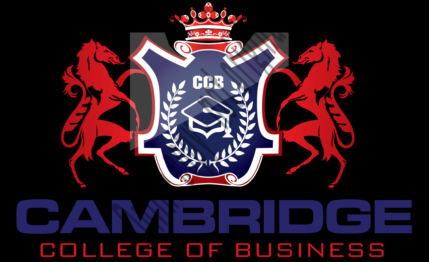
Cambridge College of Business – Diploma in Computing – Level 4
Computer science or computing science (abbreviated CS or Comp Sci) is the scientific and practical approach to computation and its applications. A computer scientist specializes in the theory of computation and the design of computational systems.Its subfields can be divided into practical techniques for its implementation and application in computer systems and purely theoretical areas. Some, such as computational complexity theory, which studies fundamental properties of computational problems, are highly abstract, while others, such as computer graphics, emphasize real-world applications. Still others focus on the challenges in implementing computations. For example, programming language theory studies approaches to description of computations, while the study of computer programming itself investigates various aspects of the use of programming languages and complex systems, and human-computer interaction focuses on the challenges in making computers and computations useful, usable, and universally accessible to humans.
The course is made up of 10 level 4 modules (120 credits)
Each module consists of 40 guided learning hours of material with an additional 30-50 hours worth of optional materials which comprise of recommended exercises, recommended readings and internet resources.Within the modules are self testing exercises. You must take care in answering these. Although they are not marked nor do they count towards your final assessment, the marking is tested against your scoring on the final assessment to check for consistency of score.
Level 4 Module Listing
Computer Systems and Software
This module will explore the functions of computing systems and the basics of design, configuration and routine maintenance.
Computer Programming
This module examines the basis of OOS and how programming fits into the broader aspects of usage of applications.
Relational Database Systems
This module will enable understanding of database design and development and enable students to develop and design a database and explore solutions to meet client brief . Learners will learn how to design a database.
Software Engineering
This module is concerned with the analysis of IT and computing needs to develop requirement specifications and develop and test prototypes.
Systems Analysis and Design
This module provides an understanding of IS concepts and how they relate to organisation needs in respect of business processes and transformation of information.
E- Commerce Applications
This module explores the role of eCommerce in the modern world and in particular the identification of aims and objectives within a business and the design issues arising from the definition of requirements.
Human Computer Interaction
This module will develop students understanding of principles and models of Human Computer Interaction and evaluate existing HCI design and principles and use this to help them plan their own prototype multimedia user interface.
IT and Society
This module examines the impact of technology on society and explores trends and changes created. It will examine management issues and potential conflicts in terms of security and data management.
Information Systems Theory and Practise
This module explores elements of project management key to successful development and implementation of specific IT projects.
Management Information Systems
This module focusses on understanding concepts of information systems and how they support business needs in terms of information processing and data processing.
Progression
Successful completion of the assessments and assignments of level 4, student can progress to level 5

